I was diagnosed with pseudomyxoma peritonei (PMP), aged 32, after many months of stomach pains, bloating, constipation and irregular periods. After numerous trips to my GP, which led to an ultrasound and eventually a CT scan, I was told I had a nine centimetre tumour on my appendix which had burst and leaked cancerous mucin into my abdominal cavity.
At the time of the scan they couldn’t tell exactly how far the disease had spread. It wasn’t until my big operation, five months later, that the true extent was revealed: the cancer had spread all throughout my abdomen from my diaphragm down to my bladder. I had an extensive nine-hour surgery which included the removal of my peritoneum, omentum, spleen, right colon, appendix, ovaries, fallopian tubes and gall bladder, as well as parts of my liver and diaphragm. They also scraped some bits of disease off my uterus and bladder before pumping a heated chemotherapy solution into my abdomen to kill off any remaining cancer cells.
Before my surgery, I had two rounds of egg harvesting in order to have some of my eggs frozen. This can be physically and emotionally a very draining and stressful experience under the best of circumstances, never mind when you’ve got the dark cloud of life-changing surgery looming. But I knew I wanted to have children one day and so for me, having the egg harvesting procedure was a no-brainer. I still have my uterus, and so hopefully, with IVF, I will one day be able to conceive and carry a child.
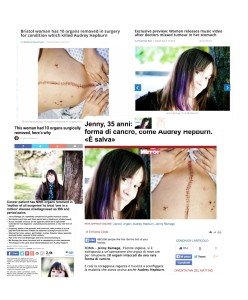
Since then I’ve had messages from several PMP patients who said they found my story really encouraging, and that it’s helped them feel less ‘alone’ in having this very rare condition – being diagnosed with PMP can be a very isolating experience, and it helps to know others who have been through the same thing. I’ve exchanged messages and spoken with several of them on the phone, one of whom was just about to undergo her MOAS¹ and was terrified. It was so nice to be able to reach out to her and offer her some support and reassurance.
This campaign has really grown legs, with more survivors coming on board who want to do their bit too – and it’s wonderful that it’s all helping more people access the support they need. For a rare disease that requires such highly specialised surgery, raising awareness is crucial. The more people who know about PMP, the more lives can be saved. Not only that, but the more people will be able to access the practical and emotional support they need – and which the Pseudomyxoma Survivor charity provides in abundance.
– Jenny
MOAS
MOAS – mother of all surgeries, a term used to describe cytoreductive surgery and HIPEC.
In case you missed it...
I was shocked by my pseudomyxoma peritonei diagnosis
Being diagnosed with pseudomyxoma peritonei (or PMP) came as a huge shock. It was discovered accidentally as my usual yearly bloods showed abnormalities.
Just when your life is going well, things are sent to mix it all up
Ruth was ignored by her GP until she asked to be referred to a gynaecologist.
The top of the paper read “Carcinoma of the Appendix”
After my ruptured appendix was removed, the surgeon said the operation “took a little longer, it was messy in there.” For the follow-up, he called me in earlier to give me the bad news.
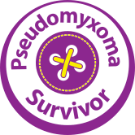
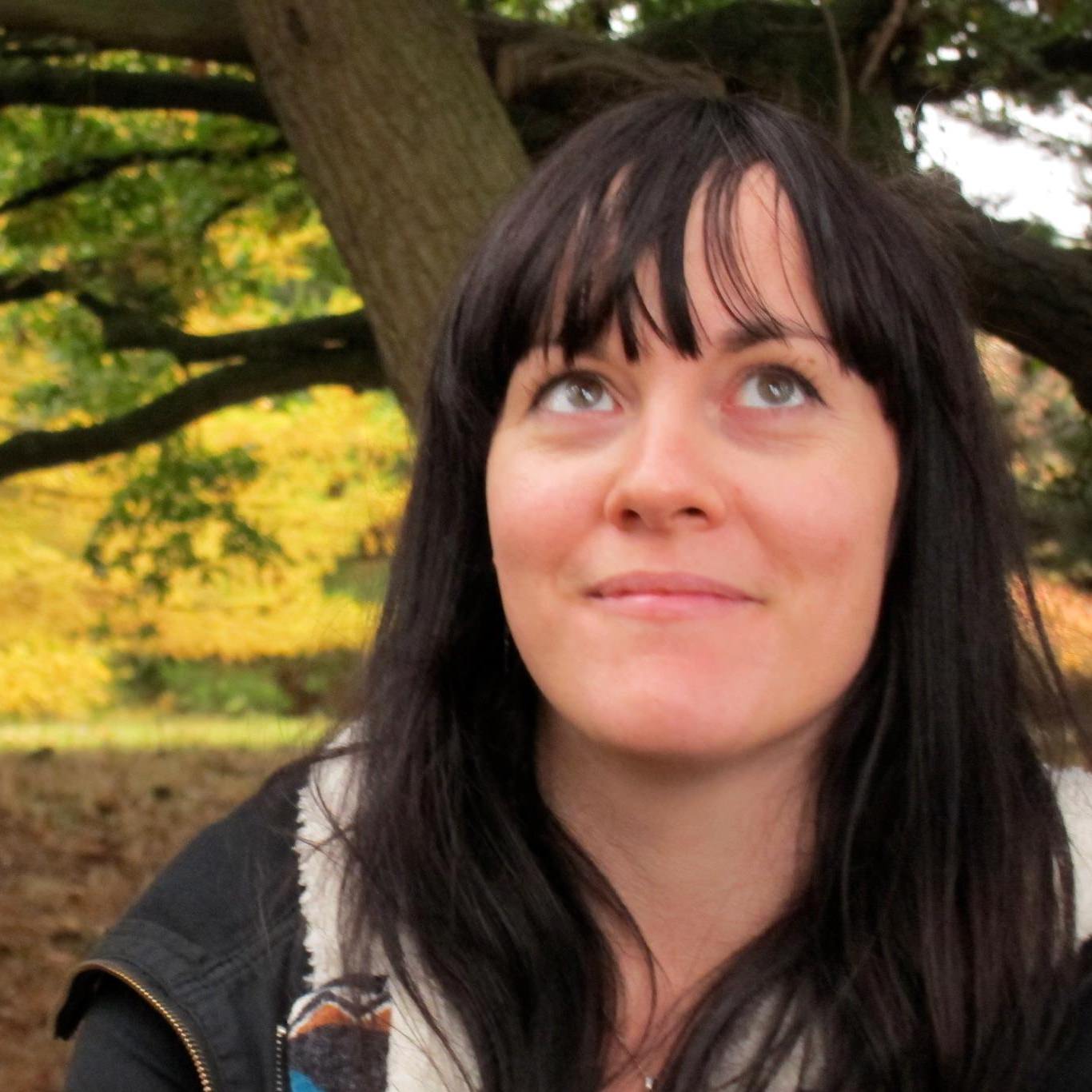
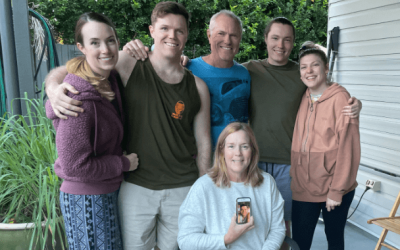

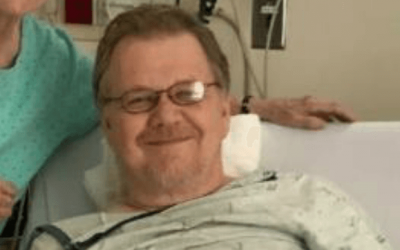
Mu mum is just about to undergo surgery for pmp, she is 72 but apart from the pump she is fit as a fiddle. However I am so terrified about her going through this surgery.
Hi Jenny:
You have done your bit in inspiring PMP patients to fight back and raising awareness about the disease, esp. finding the right care. My mum just had MOAS 9/9/2016, her 63 birthday at Mount Elizabeth hospital in Singapore. She is fighting hard, now in ICU. Her condition improves well as I constantly get updates from her doctors.
I hope she will come out of this fight alive and strong.
Please keep her in your prayers.
S Lim
Great site to read and to help one keeping positive in dealing with pmp. Keep up with fantástic work!!!!!!
thank you for your kind comments – positive comments really help keep us going. Susan x
I am waiting to see surgeon at Basingstoke. I have a large tumour in my bowel which has led to pmp. I am 67 and fit. I want to have this operation but I am having to wait a month before my first appointment. Is this the way it is. I can’t find anyone who has what I have. Any help of advice would be very much appreciated.
Helen
Hi! I just stumbled on this site somehow. I had the same thing you did 6 years ago, even the same scar! They did the surgery and hipec and took out most of my non-essential innards along with 2 ft of intestines. I was 34 at the time and in good health prior. Afterwards I was able to get back into shape, kickboxing and grappling. (Although at a lighter pace because it hurt to get punched in the gut) But there’s hope! My biggest issue now is my digestion, which is a constant struggle depending on my diet. Thanks for helping me know I’m not alone!!